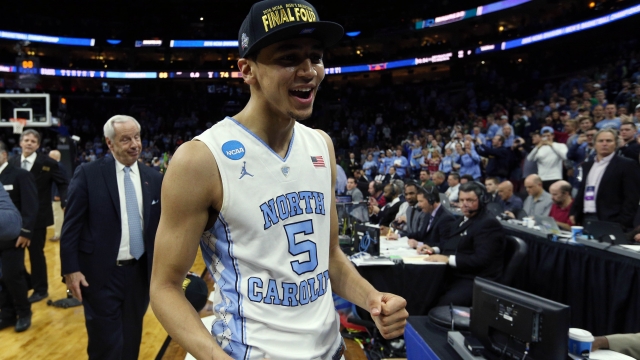ACC Back in the Final Four With Two Teams, Again…
Posted by Brad Jenkins (@bradjenk) on March 31st, 2016When North Carolina squares off with Syracuse in Saturday’s late national semifinal, it will mark the sixth time in league history that the ACC has entered two schools into the season’s final weekend. It’s been a great March Madness showing for the conference, with a record six schools in the Sweet Sixteen, a record-tying four teams in the Elite Eight, and an overall 18-5 record. The last time the ACC sent two teams to the Final Four was in 2004, when the league still carried nine teams. Since then, the ACC has undergone two major expansions that resulted in an immediate and noticeable downturn in its long tradition of basketball excellence. But combined with last year’s fine NCAA Tourney showing, it appears that the ACC has regained its status as the best among the nation’s major hoops conferences.

Marcus Paige and North Carolina will face a familiar foe in Saturday’s National Semifinals. (Bill Streicher/USA TODAY Sports)
It’s a little surprising how often individual conferences send multiple teams to the same Final Four. Of course, only one school per conference could participate in the NCAA Tournament for the first 36 years of the event. That changed in 1975 — thanks in large part to Maryland’s exclusion in 1974 — and, from there, it only took one season for a league to place two teams in the season’s final weekend — Indiana defeated fellow Big Ten school Michigan in the 1976 title game. In 1980, the Big Dance became a fully open tournament, with no limit on the number of teams a conference could send. Since then, 65 percent (24 of 37) of the subsequent Final Fours have featured multiple teams from the same conference. Particular hats off to the 1985 Big East, a league that sent three of its members to the Final Four. As you can see below, the Big Ten leads the way with multiple appearances over that span.

This year marks the fourth straight Final Four with two teams from a single league, as four different power conferences (ACC, Big Ten, SEC, Big East) have turned the trick. There have been longer such streaks in history, with the longest being an eight-season run from 1999-2006. Somewhat surprisingly, though, this year’s ACC meeting between North Carolina and Syracuse will only be the third time since 1989 that two teams from the same league have played each other in the Final Four.

The last two times that ACC teams met in the Final Four resulted in a pair of memorable games. In 1981, North Carolina had lost both regular season meetings with Virginia before finally defeating the Cavaliers in the national semifinals. The Tar Heels surrounded Ralph Sampson in an effective defensive effort that held the NPOY to 11 points, while Al Wood exploded for 39 points to lead North Carolina to a 13-point victory. Heading into the 2001 Final Four, Duke and Maryland had already played three high-level games that season, with Duke winning twice. The Blue Devils won for a third time in the national semifinal, but it needed to overcome the largest deficit ever (22 points) for a winning team in Final Four history.
While in different conferences, North Carolina and Syracuse have met in NCAA Tournament play three previous times during the regionals, with the Tar Heels claiming the first meeting (1957) and the Orange the last two (1975 and 1987). The coaches have met once before in the Final Four, as Jim Boeheim won his only national title when Syracuse edged Roy Williams’ Kansas club in the 2003 championship game. That turned out to be Williams’ final game as the Jayhawks’ head coach before returning to his alma mater to rebuild the North Carolina program. He has to hope that his team rebounds like his Jayhawks did 13 seasons ago when they grabbed a whopping 24 offensive rebounds against the Syracuse zone. But Williams also doesn’t want a repeat of the foul shooting woes that plagued his team that night — a miserable 12-of-30 performance that undoubtedly cost Kansas its third national title.










































